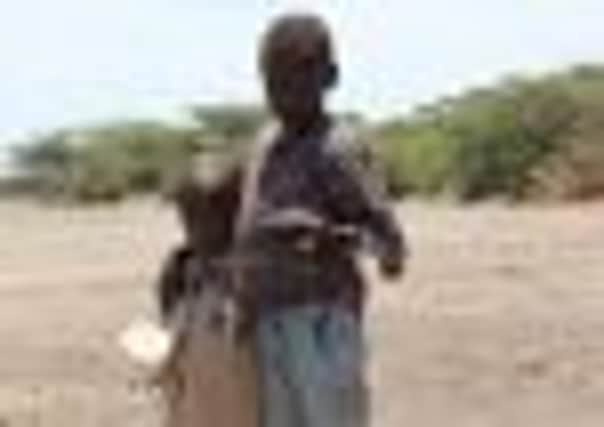Oxfam identifies a new target in its fight to end poverty


A HUGE swathe of land eight times as big as the UK was sold off globally in the last decade, according to Oxfam.
This would be enough space to potentially produce food for a billion people, the same number who go hungry in the world today, the international development agency claims.
Advertisement
Hide AdAdvertisement
Hide AdIt’s a startling figure and in a new report, Our Land, Our Lives, Oxfam warns that more than 60 per cent of investments in agricultural land by foreign investors between 2000 and 2010 were in developing countries where hunger was a serious problem. The charity also says that two-thirds of those investors plan to export everything they produce on the land, leaving the local communities with no chance to feed themselves.
The report coincides with Oxfam’s 70th anniversary on Friday and it is launching a new campaign outside Westminster this morning to end what it calls “land-grabbing” which it says is exploiting some of the world’s poorest people.
Oxfam says it supports greater investment in agriculture and small-scale farmers but warns that the rush for land development has not been properly regulated or policed to prevent these so-called land grabs. This means that poor people continue to be evicted, often violently, without consultation or compensation. Many lose their homes and are left destitute, without access to the land they rely on to make a living.
In Liberia, about 30 per cent of the country has been swallowed up by land deals in five years and it’s estimated that land deals tripled during the food price crisis in 2008 and 2009 because land was increasingly viewed as a profitable investment.
Advertisement
Hide AdAdvertisement
Hide AdBarbara Stocking, Oxfam’s chief executive, says with global food prices once again approaching record levels urgent action is needed by the international community, especially the World Bank. “The rush for land is out of control and some of the world’s poorest people are suffering hunger, violence and greater poverty as a result.
“The World Bank can help stop these human rights abuses and ensure that investments help not harm poor communities. Investment should be good news for developing countries – not lead to greater poverty, hunger and hardship,” she says.
“Addressing the rush for land is key to tackling global hunger and must be at the heart of the debate when the UK government presides over the G8 next year. The UK should also show leadership in reversing flawed biofuels targets which are a main driver for land and are diverting food into fuel.”
Oxfam campaigners from Leeds, Sheffield and York are among those taking part in today’s protest, aimed at raising awareness of the issue. Harriet Miligan, 21, from York, is being joined by Sean Couniham, from Leeds as well as 30 year-old Amy Roberts from Sheffield.
Advertisement
Hide AdAdvertisement
Hide Ad“An area of land the size of York is being sold to foreign investors every day in poor countries,” says Harriet, a student at York University.
“As a result people who are trying to grow food and feed their families are suffering hunger, violence and greater poverty. We must take action now – investments can be positive, but they need to be regulated to prevent abuse.”
After the protest in London she plans to take the campaign to the people of York and put pressure on UK Government. “If we make our voices heard, we can support farmers in poor countries to have enough land to grow their food – and that everyone has enough to eat.”
Oxfam is calling on the World Bank, which is both an investor in land and an adviser to developing countries, to put a six-month freeze on its agricultural investments in land so it can review its advice to developing countries, help set standards for investors and introduce more robust policies to help stop land-grabs.
Advertisement
Hide AdAdvertisement
Hide AdIn 1942, the Oxford Committee for Famine Relief (the organisation that later became Oxfam) was set up to lobby the government for the relaxation of the Allied blockade of occupied Europe so that food supplies could reach starving women and children, especially in Belgium and Greece.
Serena Tramonti, Oxfam’s regional media manager for the North of England, says its legacy continues. “Seventy years ago we started work to fight hunger by sending food parcels to refugees fleeing Nazi occupied Greece and 70 years later we are helping to raise awareness of one of the major causes of hunger – land-grabbing.”